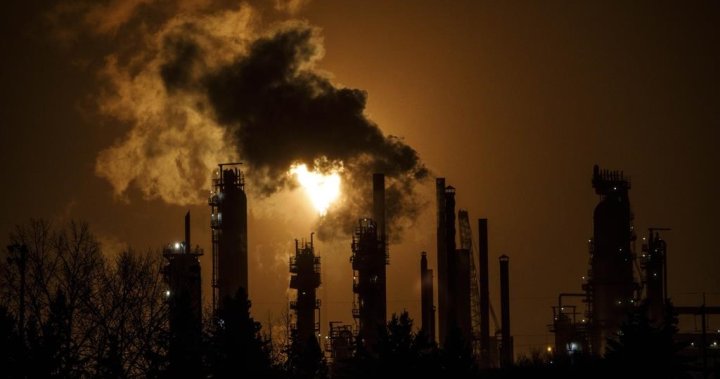After weeks of uncertainty, Canada’s energy sector received the news it had been fearing — the U.S. will soon start imposing tariffs on Canadian oil and gas imports.
On Friday, President Donald Trump said he would probably set tariffs on Canadian oil and gas at 10 per cent.
While that’s less than originally feared, people who work in Canada’s energy industry say it’s still significant and will have an impact on both sides of the border.

Experts say that despite the tariffs, Americans still need Canada’s oil and gas because nearly two-thirds of U.S. oil imports come from north of the border and many of the refineries in the U.S. midwest are designed specifically to process heavy Canadian crude.
“Those refineries are very dependent upon Canadian crude. So, 4 million barrels a day — it’s about one in four barrels that are used by U.S. consumers as gasoline and diesel. So, you know, the refineries will have to jack up prices,” said Richard Masson, professor of public policy at the University of Calgary.

Get breaking National news
For news impacting Canada and around the world, sign up for breaking news alerts delivered directly to you when they happen.
However, higher prices, in turn, are also expected to lead to less demand.
“This will have a huge blow to the Canadian economy,” said Gurpreet Lail, CEO of Enserva. “The tariffs will put tens of thousands of jobs at risk.”
The Canadian Association of Petroleum Producers warns if Canada responds to American tariffs by curtailing energy exports to the U.S. it could leave Ontario and Quebec vulnerable because they depend on imports of oil and gas from the U.S.
THE CANADIAN PRESS/Graham Hughes
The Canadian Association of Petroleum Producers said a trade dispute with the U.S. could also put other parts of Canada at risk, particularly Ontario and Quebec that depend on the U.S. for imports of crude oil, natural gas and other refined petroleum products and there are no immediate alternative sources available.
CAPP warns in a statement that “this dependence poses a risk that Canadian retaliatory measures, such as export restrictions on US exports, could also lead to similar actions from the United States, resulting in energy shortages and higher prices for Canadians.”
© 2025 Global News, a division of Corus Entertainment Inc.



